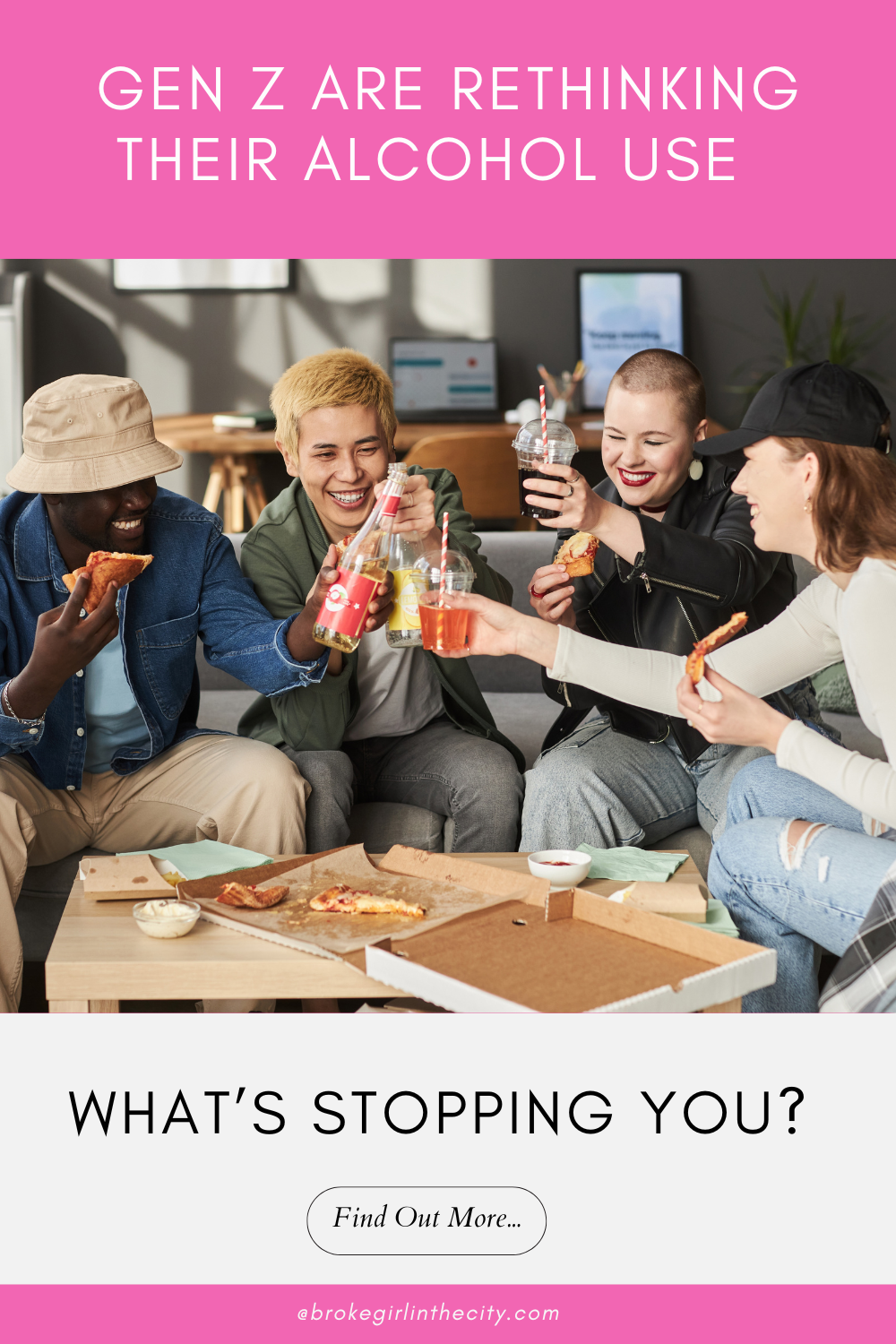
Alcohol Awareness Week: Gen Z are Rethinking Their Alcohol Use, What’s Stopping You?
As a nation built on the pint glass, Lee Hawker-Lecesne, Clinical Program Director at The Cabin, Drug and Alcohol Rehab in Thailand, examines the relationship between British culture and alcohol. Alcohol Awareness Week (July 7th-13th) offers a chance to explore this deep and often unchallenged connection. Across centuries, alcohol has not merely existed in the UK. It has flourished as a ritual. It acts as a symbol and an emotional utility. Drinking in Britain is more than a habit. From the roaring ales of Shakespearean taverns to the glinting prosecco flutes of Instagram reels, it’s an identity.
At the heart of this national identity sits the institution of the pub. The British pub is not simply a place to drink but a cornerstone of social interaction. It is a gathering place, a community hub, a second living room. Traditionally hosted everything from birthday parties to wakes, awkward first dates to football match viewings. It is both a stage and sanctuary. The phrase “down the pub” carries with it connotations of camaraderie, relief, release. As Lee puts it, “The pub isn’t just where we drink. It’s where we decompress. Connect. It’s where we act out versions of ourselves.”

Excessive Alcohol Consumption in the UK
Yet behind the warmth of these traditions lies an uncomfortable truth. The UK’s relationship with alcohol is one of the most excessive in Western Europe. In 2023, alcohol-specific deaths in England and Wales reached a record high. The Office for National Statistics reported over 8,700 deaths. Public Health England also reports that nearly one in four adults regularly engages in binge drinking. This occurs when women consume more than 6 units, and when men consume more than 8 units in a single session. These numbers are not abstract. They translate into overflowing A&E departments, lost productivity, fractured families, and spiraling mental health conditions. “Alcohol harm doesn’t always look like addiction. Sometimes it looks like burnout, loneliness, or a body quietly breaking down,” says Lee.
Alcohol’s presence in Britain is not accidental. It is perpetuated and polished by a slick global marketing machine that has become increasingly sophisticated in its reach. The alcohol industry uses influencer campaigns and festival sponsorships. It has also facilitated the explosion of “lifestyle” wines and artisanal gins. These strategies ensure the industry has mastered the art of making drinking aspirational. In UK media portrayals, alcohol is rarely shown as problematic. It is the stuff of celebration, reward, and even self-care. Wine is offered as the modern mother’s ally. Beer is presented as the working man’s reprieve. Cocktails are seen as the urban professional’s badge of cool. These narratives are carefully constructed – and incredibly effective. Marketing doesn’t just sell alcohol. It sells the idea that to not drink is to somehow be dull, difficult, or alone.
But what happens when a whole generation starts rejecting that narrative?
Generation Z – broadly those born between 1997 and 2012 – are drinking less alcohol than any generation before them. And not just marginally less, but dramatically. According to a 2024 YouGov survey, 39% of 18- to 24-year-olds in the UK report being teetotal. In comparison, just 15% of their millennial predecessors were teetotal at the same age. The decline is consistent across the Western world. Similar patterns are emerging in the United States, Australia and across much of Europe. We’re seeing a generation that questions inherited norms.
For Gen Z, alcohol isn’t a rite of passage; it’s an option.
Mintel conducted a recent study. It found that young Britons aged 20 to 24 are nearly 50% less likely to buy alcohol for home consumption. This is in comparison to those aged 75 and over. And the market is responding. Major supermarkets and beverage brands are rapidly expanding their no- and low-alcohol offerings. The new sober market is booming with zero-proof spirits, botanical sodas, and alcohol-free IPAs. Younger consumers are driving this trend. “Industry adapts quickly to demand, and right now, the demand is for clarity, control, and connection,” Lee explains.
This is not a temporary blip or a new wave of puritanism. It reflects a more profound, values-based shift in how young people see health, identity, and social connection. It also raises a potent question: If Gen Z can do it, why can’t the rest of us? “This isn’t about moral superiority. It’s about emotional agency. Gen Z is asking, ‘What makes me feel good tomorrow?’ not just tonight,” Lee observes.

Why Are Gen Z Drinking Less?
1. Health and Mental Wellbeing:
This generation is far more attuned to the link between alcohol and mental health. They’ve grown up in a post-wellness era, surrounded by conversations about anxiety, depression, and trauma. Alcohol, rather than being seen as a comfort, is increasingly viewed as a depressant and disruptor of sleep, emotional stability, and physical health. In a 2023 NHS Digital survey, over 60% of Gen Z respondents cited “mental health and wellbeing” as a major reason for choosing to drink less or not at all⁶. When you’re raised with language for your anxiety, it makes sense to avoid something that amplifies it.
2. Financial Pressure:
The cost-of-living crisis has hit young people hard. With rising rents, university debt, and stagnant wages, many are choosing to spend money on experiences. They focus on health and savings rather than nights out. Pre-drinks, transport, club entry, and the inevitable kebab can add up to a significant expense. A night of heavy drinking can quickly burn through the better part of £50-100. In a time of economic uncertainty, cutting alcohol is a practical choice. Alcohol is expensive not just in pounds, but in productivity and peace of mind. Gen Z knows the price of both.
3. Digital Reputation and Image Control:
Gen Z are the first generation to come of age entirely online. Their lives are experienced through lenses and timelines. They are hyper-aware of how easy it is for drunken mistakes to become viral missteps. Being in control isn’t just a preference, it’s a form of self-protection. The idea of being filmed slurring on a friend’s story is enough to encourage moderation. Ending up meme-worthy on TikTok can also lead to full sobriety. You can’t untag regret. Gen Z are crafting lives they don’t need to excuse in the morning.
4. Evolved Social Norms and Alternatives:
Sobriety is no longer the awkward choice. Alcohol-free bars are on the rise. Sober social apps are becoming popular. Influencers are promoting “dry lifestyle” content. As a result, being sober now carries social kudos. Alcohol-free is not just accepted in some circles, it’s celebrated. It is no longer necessary to drink to belong. For Gen Z, connection is about shared values, not shared hangovers. Belonging doesn’t need a buzz. Gen Z are proving that authenticity trumps intoxication.
5. Better Options:
Non-alcoholic drinks are no longer limited to warm orange juice or sugary colas. Craft beverage innovation has exploded, giving rise to alcohol-free gins, hoppy non-alcoholic beers, and mood-enhancing functional drinks. The appeal of a grown-up, aesthetically pleasing beverage without the fallout is clear. Taste without the toxicity. That’s the win Gen Z are chasing.
Turning the Mirror Inward
Gen Z’s quiet revolution gives the rest of us an invitation: not to copy, but to think. Here are some uncomfortable, but necessary questions to ask ourselves this Alcohol Awareness Week:
- Is alcohol still a conscious choice for me, or has it become a habitual default?Would I be proud if someone I loved drank the way I do?
- If alcohol didn’t exist, what part of my life would collapse? Would it be my social circle? Would it affect my coping strategy? Would my sense of identity be impacted?
- Am I drinking because I enjoy it, or because I don’t know how else to manage what I’m feeling?
A Cultural Rethink?
What we’re seeing is not the decline of fun, but the redefinition of it. Gen Z haven’t stopped celebrating. They’ve just stopped relying on alcohol to do it. Their social lives are no less vibrant, they’re just more intentional.
As Alcohol Awareness Week invites all of us to consider, the best thing older generations can do is get curious. We don’t need to copy Gen Z’s lifestyle wholesale. But we can learn from their discernment. Their generation is showing that another way is not only possible, it’s already happening. “We owe it to ourselves to wonder whether the way we drink still serves the lives we want to live,” says Lee. “Maybe ask yourself: What does alcohol give me? What does it take away? And who I be if I gave myself the space to find out?”
Lee Hawker is the Clinical Programs Director at The Cabin Group. This is an international network of treatment centres specializing in addiction and mental health. With over 25 years of experience in applied psychology and a clinical background rooted in trauma-informed care, Lee leads innovative, evidence-based programs that serve diverse populations across Asia and Europe. His professional focus is on reshaping conversations around recovery, resilience, and the social drivers of substance use.
